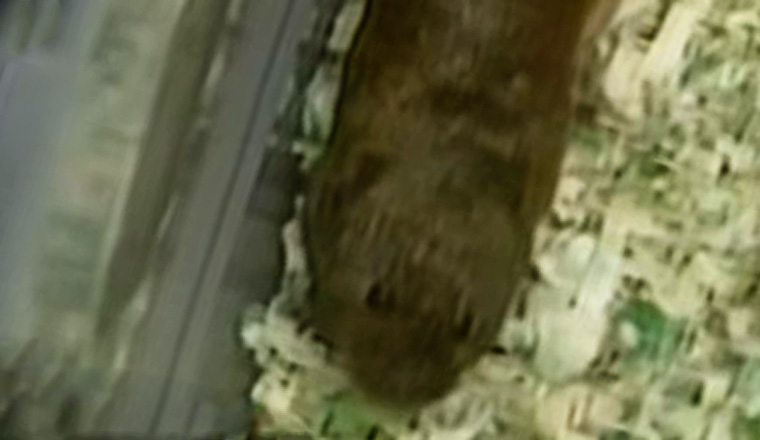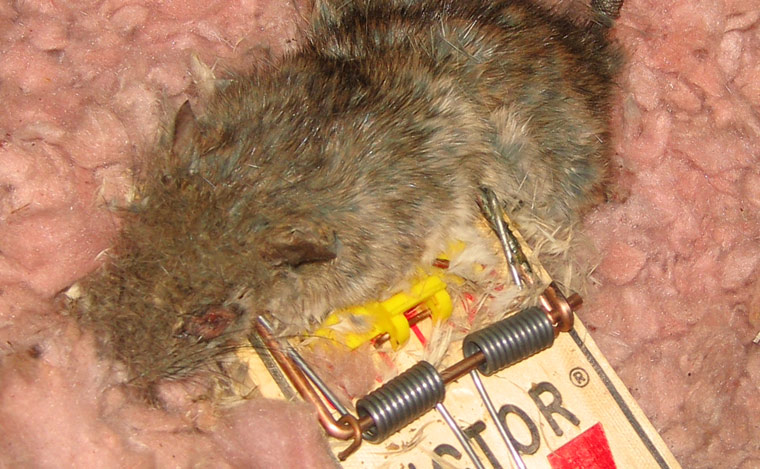-
info@aaanimalcontrol.com
Call us for help in your town
Humane Wildlife Education
Getting rid of voles
Need vole removal in your hometown? We service over 500 USA locations! Click here to hire us in your town and check prices - updated for year 2020.
If you have a vole in your home then you are aware that they can be just as difficult to get out of your house as any other kind of rodent. Because they are so similar to mice, they act and live very much like mice would do. This means that they will leave their waste around, which commonly contains such things as bacteria and parasites, as well as get into your food and dismantle your carpeting. They are just as much of a nuisance as any mouse could ever imagine being.

Once you know that you have voles in your home then your work is really cut out for you. Just like mice can be a real nuisance to get rid of, the voles are no different. It takes some work and ingenuity on your part to be able to get them out of your home, and so here are a few ways where you can have success on getting rid of voles.
The most obvious one of these is to use some kind of poison. The same poisons that work on mice and rats will work on voles. You place in cubes behind your refrigerator, washing machine, or other area where you know they have been known to go to, and let the poison do the rest.
Keep in mind that there are some pitfalls to this choice. If you are not real careful, your children or pets can get to that poison as well. This is why you have to be really guarded about it. In addition, you are going to have to locate where the voles went to do die. You don't want a rotting carcass in your wall somewhere.
You can go with the trap. There are several traps that you can buy out there that allow you to either capture the animal, or create a more permanent solution like killing the animal. Most of us are quite familiar with the common mousetrap, and this works just as well for the vole. If you decide to capture the animal, then you want to let it outside but ensure you take measures so that it cannot get back in.
A great way to get voles out of your home is to have a cat. Cats love chasing after rodents like this, and one or two of these felines can resolve your vole problem in no time at all. They are the true rodent hunters of the earth.
You could also hire an exterminator to come and do the job for you. There are several great professionals out there that know how to find your voles may live in your home, and rid your house of this rodent in no time at all. This can be a costly choice, but it is usually a very thorough one that does the job exceptionally well. Your vole problem will be resolved, and you will not have to worry about them anymore. It's just a matter of whether you want to pay that cost or not.
How to Get Rid of Voles
Need wildlife removal in your hometown? We service over 500 USA locations! Click here to hire us in your town and check prices- updated for year 2020.
You have a number of options when it comes to figuring out how to get rid of voles, but you will need to look at things from a sensible, common-sense point of view. These animals are GOOD for the ecosystem around you, despite not being over great for your actual property, and definitely not your lawn. They eat lots of insects which would otherwise cause massive problems for crops and humans. They don't actually live that long either, usually only for about a year. The bad thing us, during that year they will mate many times. They don't hibernate away the winters, they're active both during the day and during the night, and they can have as many as TEN litters in one year, with as many as SIX pups in each litter. One vole partnership could create as many as 60 vole babies in just one year. The more voles you have on your land, the more they'll eat, and the more devastation and destruction they'll cause too. They eat everything and anything, and they'll dig, burrow and claw their way through anywhere they need to in order to get to the good stuff.

Taking all of this into consideration,killing boles is most definitely not an option you should look at seriously. To start with, although they are rodents, rodent poison is not effective on voles. It is also not safe to use the amount of poison you would need. Other forms of wildlife will eat it and therefore die, and you run the risk of killing your neighbor's cat.
There are certain steps you will need to take in order to make your home vole-proof, and we're going to share them:
Step One: Modify
Take a good look at your yard or garden. What's happening? Is it messy? If it is, all of those piles or garden debris are providing shelter to various wild animals, voles included, and you will more than likely find small burrow entrances around the base of trees.
Ground cover, although it might look great, is the worst thing you can have in your garden when you also have wild animal invaders. Brush piles, for example, are perfect for the average vole looking for shelter, and wood piles, garbage piles, compost piles, low shrubs and bushes, and more can also provide shelter. If you take these away, the voles have no shelter. They won't feel safe. There's a good chance they'll move along on their own accord, without too much human intervention.
As well as taking away any forms of shelter you're offering these creatures, you'll also need to look at making sure you're protecting your pants too. Wire mesh can be used to create protective cages for bulbs underground, as well as around gardening areas, and trees too. Just make sure the wire mesh goes a couple of feet under the ground as they are burrowing, digging creatures, and a few inches above ground - 8 to 10 should be enough. Just remember to allow for higher ground during the snowfalls of winter.
Step Two: Trapping
We recommend that you leave this trapping business down to the professionals. There are a lot of things that can go wrong, and voles, being rodents, come with a serious amount of diseases too. In fact, they are one of the main culprits for spreading the dangerous disease, Hantavirus, which can be deadly in as many as forty percent of all cases.
If you're going to use a trap, make sure you use a good quality, reliably named trap, and one that works too. Test it. Use a good bait, such as apple, hummus, or peanut butter, but make sure that you're checking the bait regularly. These traps will need to be put in exactly the right places to ensure that you catch voles and not other wild animals ... or your neighbor's cat.
Traps are best put down as the winter is drawing in, although there is nothing to stop you from using traps the whole year around. During the winter, however, food will be harder to come by. They will be more inclined to take a peek at the food stashed away in your trap. If you find voles in your yard in the summer, however, you shouldn't wait until winter to try and get rid of them. They can ridiculous amounts of damage in that time.
Step Three: Prevention
We've already mentioned fencing, and we feel that adding those physical barriers between wild animals and the areas you don't want them to damage is a very good idea. As well as that, there are other preventative measures that you could take, although you must be aware that they often come with varying degrees of success.
There are a number of food items that voles and other rodents are said to not like much, and hot peppers, such as capsicum, and also castor oil are two such things. You can spray castor oil around the areas you find the voles affecting the most, and add dried chili or chili sprays too if you like. You must think about it this way though — if repellents such as these really worked 100% of the time, animal removal experts would be out of a job. They're most definitely not. In fact, they are more in demand than ever. Animals are getting smarter.
Some homeowners have reported having a cat can help to get rid of smaller rodents, such as voles, but we wouldn't recommend this. Voles come with a number of deadly diseases, and your cat can contract these, as well as pass them along to you and the rest of your family.
For more information, you may want to click on one of these guides that I wrote:
How To Guide: Who should I hire? - What questions to ask, to look for, who NOT to hire.
How To Guide: do it yourself! - Advice on saving money by doing wildlife removal yourself.
Guide: How much does wildlife removal cost? - Analysis of wildlife control prices.
Animals in the attic - read about the common species.
Noises in the attic - how to identify critters by their sounds.


















